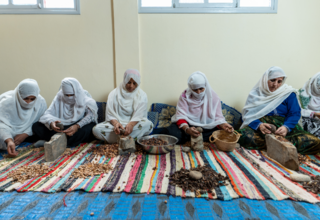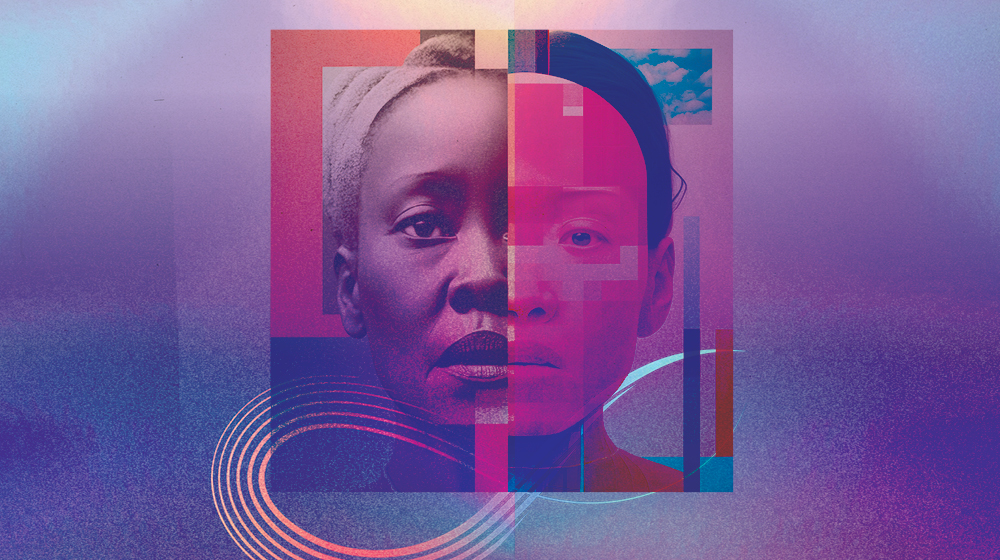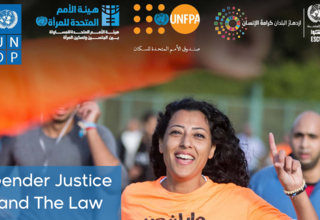Beirut, 10 December 2018 – Many Arab countries have introduced positive legislative reforms that promote gender equality and protect women from violence. Yet guaranteeing equality before the law remains a persistent challenge across the region. This was the consensus of over 150 gender experts, activists; legislators, jurists and government officials, who convened today in the Lebanese capital for the Regional Dialogue on Gender Justice & the Law in the Arab States Region.
The dialogue was grounded in the recently completed study comprising assessment of laws and policies in 18 Arab countries. It examines guarantees of gender equality and protections against gender-based violence in the constitutions; penal codes; personal status codes; nationality laws; and labour laws.
“We are here today to join women all over the region, demanding respect, equality of opportunity and representation, and an end to violence and harassment, at home, on the streets, in public life, and in the workplace,” stressed Mourad Wahba, Chair of the United Nations Development Group for the Arab States, Middle East and North Africa, and Director of the Regional Bureau for Arab States in the United Nations Development Programme. “The study that we launch today recognizes the potential of the law to help guarantee the rights of women and girls and support equitable development for all. Failing to do so will deprive more than half of our region from achieving their full potential.”
The study underlines that reforms in several Arab countries have addressed domestic violence and sexual harassment in public and in the workplace, but more needs to be done. Among all the laws analysed those related to labour show the most equality including the right to equal pay for the same work as men and secured paid maternity leave.
Yet, legal gaps in many countries continue to deny women equality before the law. In a few countries the Constitution does not guarantee gender equality, and penal codes exonerate a rapist from punishment if he marries his victim in at least 5 countries. Penal codes in 11 countries also allow for mitigating circumstances, such as adultery, to decrease penalties or exonerate perpetrators of so called “honour" killings. None of the countries included in the study explicitly criminalizes marital rape. Nationality laws in 10 countries limit the rights of women to pass citizenship to her children and a foreign spouse, and Family laws in all 18 countries do not give women equal rights in all aspects of marriage, divorce, guardianship and custody of children. Labour laws in 16 countries restrict women from engaging in some types of night work.
The study is the fruit of a collaborative effort between the United Nations Development Programme (UNDP) and the United Nations Entity for Gender Equality and the Empowerment of Women (UN Women), the United Nations Population Fund (UNFPA) and the United Nations Economic and Social Commission for Western Asia (ESCWA).
The second day of the dialogue features a technical workshop with experts, practitioners and activists to explore priorities and avenues for action to achieve gender equality through the law at country and regional levels, based on the findings of the 18 country reports.
All Gender Justice & the Law materials can be accessed through UNDP, ESCWA, UNFPA and UN Women websites
Attributable Statements about the Study:
“Justice is an essential ingredient for successful and inclusive sustainable development. When women are denied access to justice, it detracts from their status as rights holders and denies them the basic right to seek accountability. Together, we must repeal all discriminatory and harmful laws and enact new laws to address gaps in legal protection.”
Mohammad Naciri, UN Women Regional Director for the Arab States
"Human rights are violated when a woman faces violence of any kind. Some advances favourable to women the Arab region should pave the way for more efforts to ensure that gender equality is enshrined in the laws and social practices in every Arab country."
Dr. Luay Shabaneh, UNFPA Director for the Arab region
Follow us:
Hashtag: #GenderJusticeAR on Twitter @UNDPArabic; @UNDPArabStates; @UNESCWA; @UNFPA_Arabic; @unwomenarabic
For more information, please contact:
UNDP Noeman Alsayyad | Communication Advisor | Regional Bureau for Arab States
E-mail: noeman.alsayyad@undp.org Mobile: +962 (79) 567 2901
Mona El-Yassir | Communication Officer | Lebanon Country Office
E-mail: mona.el-yassir@undp.org Mobile: +961 (3) 240 036
UN ESCWA Nabil Abu-Dargham | Head of Communication and Information Unit E-mail: dargham@un.org Mobile: +961 (70) 993 144
Rania Harb | Public Information Assistant E-mail: harb1@un.org Mobile: +961 (70) 008 879
UNFPA Tamara Alrifai | Advocacy & Communications Advisor | Arab States Regional Office
E-mail: alrifai@unfpa.org
UN Women Diego De La Rosa | Regional Communications Consultant | Regional Office for Arab States
E-mail: diego.delarosa@unwomen.org Mobile: +971 (50) 6862 312
About the Gender Justice & the Law in the Arab States Region study:
The study provides a systematic review of the laws in 18 countries of the Arab states region to assess whether they promote or impede equality between women and men and provide protection against gender-based violence. The countries included in the study are: Algeria, Bahrain, Djibouti, Egypt, Iraq, Jordan, Lebanon, Libya, Morocco, Oman, Qatar, Saudi Arabia, Somalia, State of Palestine, Sudan, Syria, Tunisia, and Yemen. Collectively, this study refers to these countries as the Arab states region.
The study includes analysis of constitutional guarantees of gender equality and constitutional protections against gender-based violence; penal codes and whether the country has domestic violence laws that address gender-based violence; personal status codes and whether they provide women with equality in marriage, divorce and inheritance; nationality laws and whether they ensure that women and men enjoy equal rights in relation to citizenship; and labour laws and whether they provide protection from discrimination and gender-based violence in the workplace.




